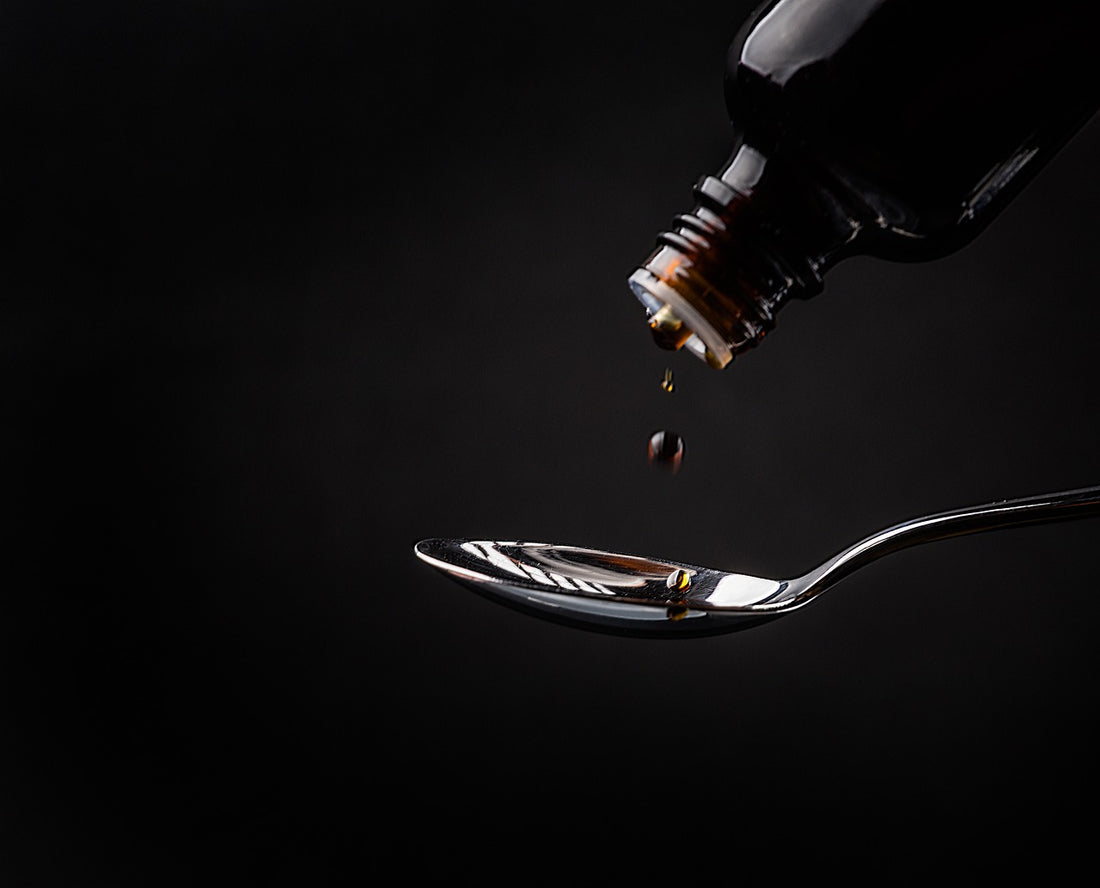
Cough Syrup and Codeine
Daniel PattersonCough syrups, particularly those containing codeine, may seem harmless because they’re readily available by prescription or over-the-counter, depending on the formula. However, these medications can be highly addictive and dangerous when misused. In recent years, “syrup,” “lean,” or “purple drank” (mixtures containing codeine cough syrup) have gained popularity among teens, partly due to pop-culture influences. Recognizing the signs of misuse and understanding how culture impacts its appeal can help you protect your teen.
What Makes Cough Syrup and Codeine Misuse So Dangerous?
Codeine is an opioid, a type of drug that slows down the central nervous system, creating a relaxed, euphoric feeling. Although it’s effective for treating pain and cough, codeine is addictive and poses risks when misused. Cough syrups with dextromethorphan (DXM), a non-opioid cough suppressant, are also frequently abused for their hallucinogenic effects at high doses.
Risks of Misuse Include:
- Addiction and Dependence: Codeine is highly addictive, and regular misuse can lead to both physical and psychological dependency.
- Poor Decision-Making: Misusing DXM or codeine affects brain function, leading to risky behaviors and impaired judgment.
- Serious Health Risks: High doses of these medications can result in nausea, vomiting, dizziness, respiratory depression, or even life-threatening situations such as coma or respiratory failure.
Statistics: According to the National Institute on Drug Abuse (NIDA), around 3.5% of high school seniors reported misusing cough medicine in 2021. Although the percentage may seem small, the appeal of these drugs due to pop-culture references makes awareness essential for parents.
How Pop Culture Influences Teen Misuse of Cough Syrup and Codeine
Music, social media, and movies have glamorized the misuse of cough syrups containing codeine, contributing to its popularity among young people. Artists in rap and hip-hop frequently reference “lean” or “sizzurp” in lyrics and videos, often showing it as part of a desirable lifestyle. The iconic purple color of these mixtures (often achieved by mixing cough syrup with a sweet, colored drink) has become a recognizable symbol in pop culture.
- Music and Lyrics: Many popular songs explicitly mention “lean” or “purple drank” as a recreational drug, celebrating its effects and associating it with a glamorous or carefree lifestyle. This repeated exposure can lead teens to view cough syrup misuse as normal or even desirable.
- Social Media: Platforms like Instagram, TikTok, and Snapchat have made drug references more accessible and visible. Teens might see influencers or peers sharing images of “purple drank” or making light-hearted videos about getting “high” on cough syrup. Such posts can trivialize the dangers, making the substance seem harmless or “cool.”
- Celebrity Influence: High-profile celebrities have openly discussed or even endorsed the recreational use of codeine-based drinks, influencing young fans. This exposure can make teens more likely to experiment, often without fully understanding the risks involved.
Signs of Cough Syrup and Codeine Misuse
Recognizing misuse early on can help you intervene before the problem worsens. Here are some physical, behavioral, and emotional signs to look out for:
- Physical Symptoms:
- Drowsiness or excessive sleepiness, even during the day
- Slurred speech or poor coordination
- Pinpoint pupils and a glassy-eyed appearance
- Behavioral Changes:
- Increased secrecy about social activities, becoming defensive or evasive
- Frequent complaints of coughs or colds as a reason to buy more medication
- Missing cough syrup or other medications from home
- Emotional Instability:
- Mood swings or irritability, often associated with the drug’s effects wearing off
- Periods of euphoria or feeling “down,” depending on the phase of use
- Signs of anxiety or depression, especially if use becomes regular
What Parents Can Do to Prevent or Address Misuse
If you suspect or discover that your teen is misusing cough syrup or codeine, there are steps you can take to help.
1. Secure and Monitor Medications
Keep any prescription or over-the-counter medications in a secure, locked location. Dispose of unused or expired medications through a drug take-back program, as recommended by the Centers for Disease Control and Prevention (CDC). This reduces the chance of accidental or intentional misuse at home.
2. Educate Your Teen on the Risks
Explain to your teen that just because a drug is legal or prescribed doesn’t mean it’s safe to misuse. Share the dangers of cough syrup misuse, including dependency, serious health risks, and the possibility of respiratory failure. Address how pop culture sometimes glamorizes this behavior but fails to show the very real consequences.
3. Offer Healthy Alternatives and Coping Strategies
Some teens misuse cough syrup or codeine to cope with stress, boredom, or social pressure. Encourage your teen to pursue activities they’re passionate about, like sports, art, or volunteer work, and help them build healthy coping mechanisms. Developing these skills reduces their chances of turning to substances as a form of relief.
4. Seek Professional Help if Needed
If your teen is struggling to stop using these substances, consult a healthcare provider or counselor. Behavioral therapies, such as Cognitive Behavioral Therapy (CBT), can help teens identify triggers and develop strategies for healthier coping. Support groups or family counseling can also provide ongoing encouragement and accountability.
Conclusion
Cough syrup and codeine misuse may be influenced by pop culture, but the risks are real. Understanding the role of media, recognizing the signs, and promoting open conversations about the dangers of misuse can help protect your teen. By being proactive and supportive, you can guide your teen toward healthier choices and away from the risks associated with these substances.
References
- National Institute on Drug Abuse. (2021). "Monitoring the Future Survey: Trends in Cough Medicine Misuse."
- Centers for Disease Control and Prevention. (2021). "Safe Disposal of Medications and Preventing Substance Misuse."











